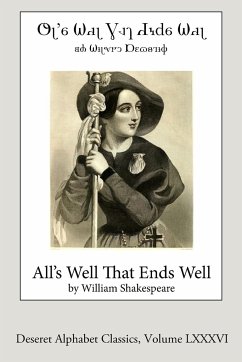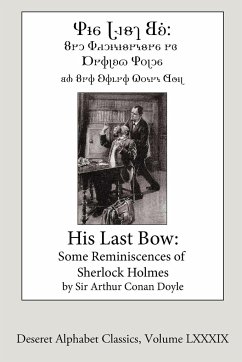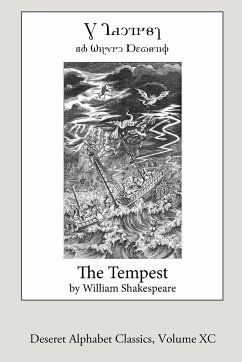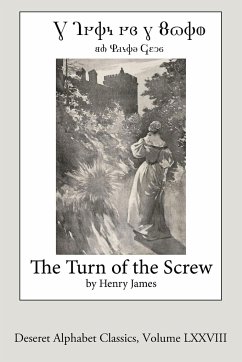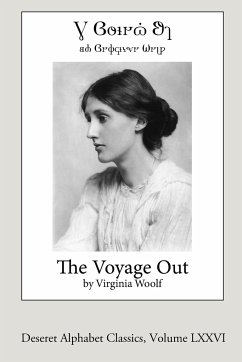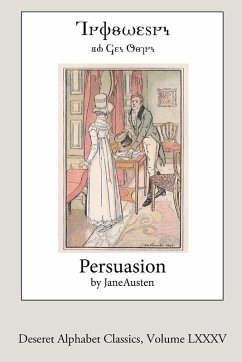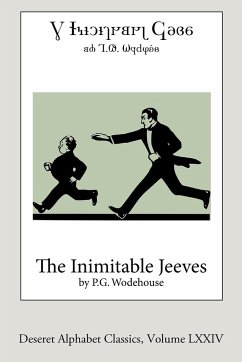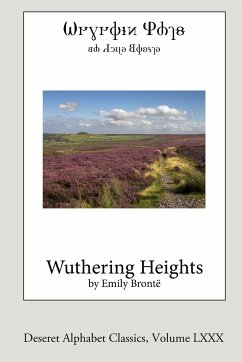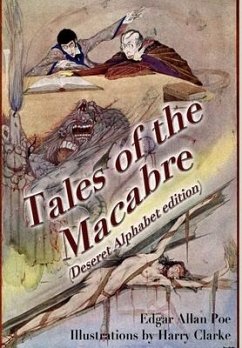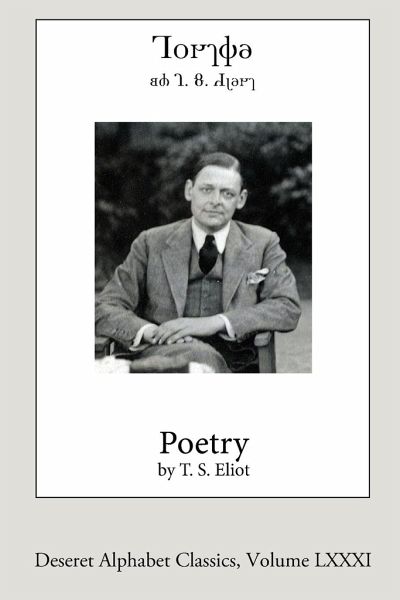
Poetry by T.S. Eliot (Deseret Alphabet edition)
Versandkostenfrei!
Versandfertig in 1-2 Wochen
9,99 €
inkl. MwSt.

PAYBACK Punkte
5 °P sammeln!
Thomas Stearns Eliot (1888-1965) was an Anglo-American poet, essayist, publisher, playwright, literary critic and editor. Although considered a seminal modernist poet, he is best known today as the author of the poems used as the basis for the Andrew Lloyd Webber musical, "Cats." Eliot won the Nobel Prize for Literature in 1948. We provide here a compilation of three slim, early volumes of Eliot's poetry. Among the poems included are two of his most famous works, "The Love Song of J. Alfred Prufrock" and "The Waste Land," complete with Eliot's own, somewhat notorious, notes on the latter. This...
Thomas Stearns Eliot (1888-1965) was an Anglo-American poet, essayist, publisher, playwright, literary critic and editor. Although considered a seminal modernist poet, he is best known today as the author of the poems used as the basis for the Andrew Lloyd Webber musical, "Cats." Eliot won the Nobel Prize for Literature in 1948. We provide here a compilation of three slim, early volumes of Eliot's poetry. Among the poems included are two of his most famous works, "The Love Song of J. Alfred Prufrock" and "The Waste Land," complete with Eliot's own, somewhat notorious, notes on the latter. This book is in the Deseret Alphabet, a phonetic alphabet for writing English developed in the mid-19th century at the University of Deseret (now the University of Utah).





